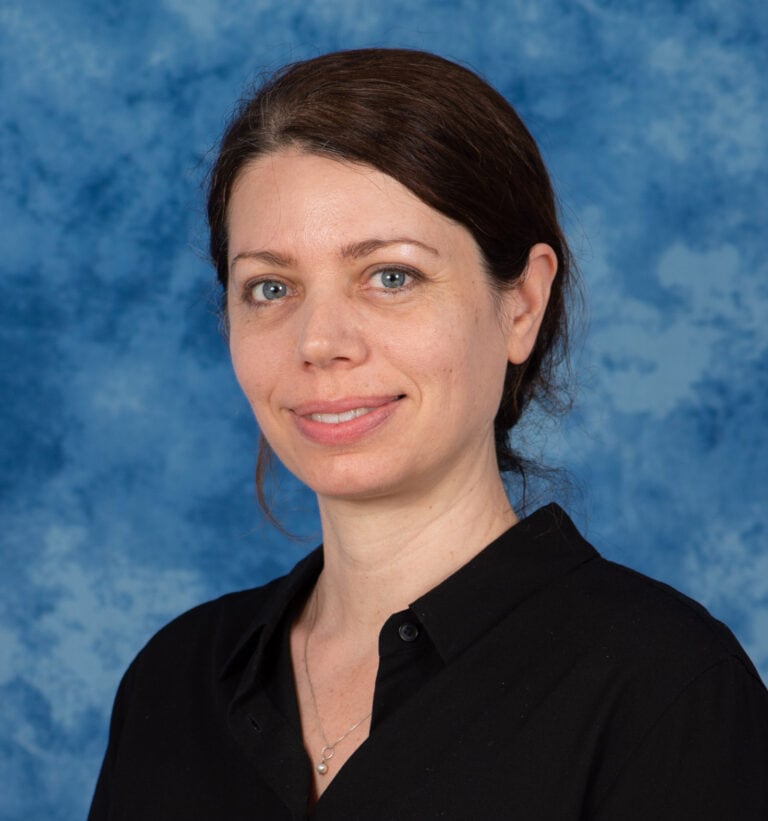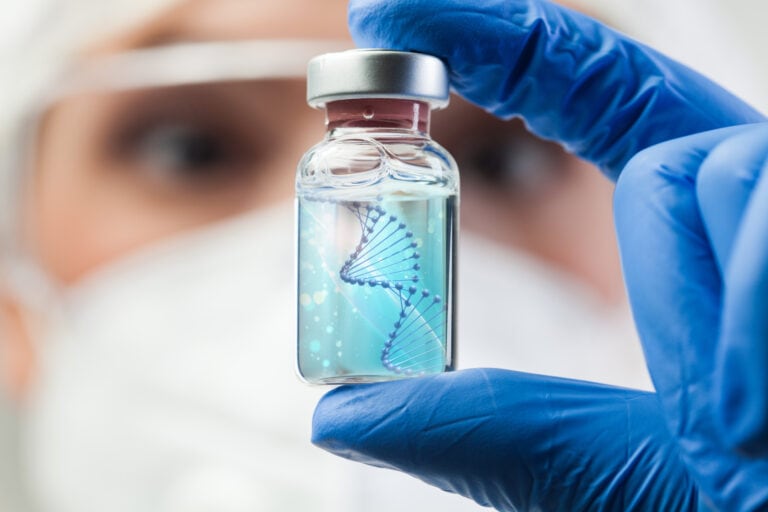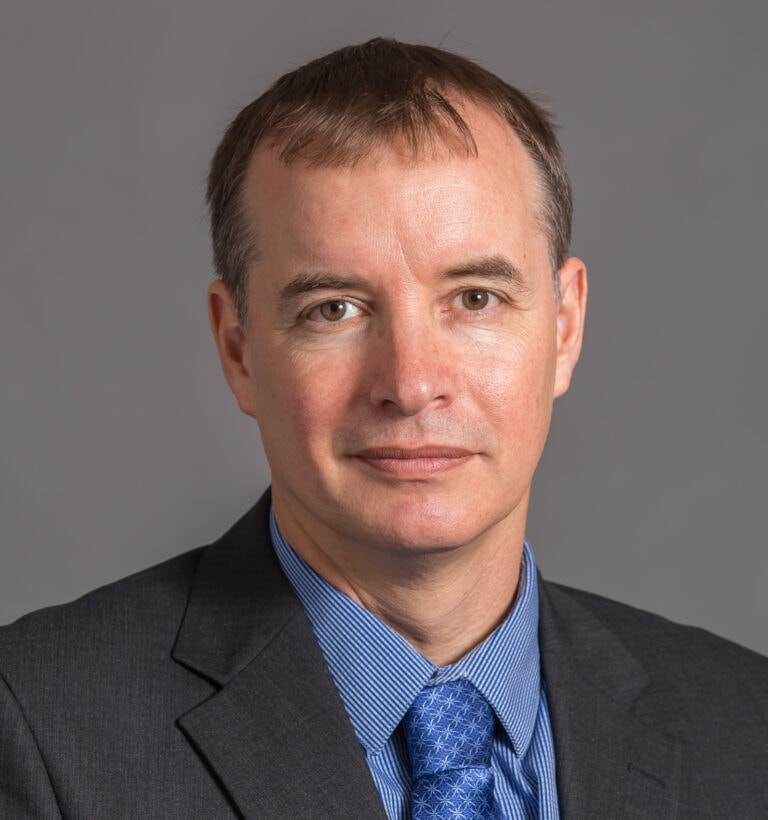About 200 million people worldwide suffer from age-related macular degeneration (AMD), and that number is expected to increase to nearly 300 million by 2040.
AMD is an eye disease that can blur central vision. It is the leading causes of blindness in Western countries, where people live long enough to experience such “first world” ocular issues. One in eight Westerners over the age of 60 can expect to develop AMD.
Already in 2021, the market for AMD treatment was estimated at $7.4 billion. The United States made up 52% of that market, the European Union 41% and Japan just over 7%.
There are two stages to AMD: dry and wet. Dry AMD comes first. There’s no worry of imminently losing sight at this point, but there is no treatment for it.
Wet AMD (also called “neovascular” or “exudative” AMD) comes later, when newly created blood vessels leak fluids into the retina – that’s why it’s called “wet” – producing visual distortion initially and, ultimately, a possible complete loss of vision.
Treatment for wet AMD currently centers on blocking VEGF (anti-vascular endothelial growth factor) signaling pathways using medication injected directly into the eyes monthly or every few months.
Anti-VEGF treatments include Lucentis, Eylea and Avastin; the latter is a drug used to treat colorectal cancer, but it also works in the eyes – and for a considerably lower price: $50 a shot vs. $2,000 for the other options.
Even with this gold standard, “Not everyone responds to anti-VEGF therapy,” says Prof. Ofra Benny, cofounder of Orsight Pharma, a startup that is developing a new treatment for wet AMD.
“Half of patients only have a partial response. Some have no response at all and start to lose their sight. It’s devastating.”
Not the only pathway

Benny, who has a degree in biotechnology engineering, did her postdoc in the lab of the late Prof. Judah Folkman at Harvard and Boston Children’s Hospital.
Folkman was known as “the father of angiogenesis” for his focus on investigating how new blood vessels are formed. He pioneered the hypothesis – now proven and widely used to treat cancers – that solid tumors need blood vessels and if they don’t have enough, they will create new ones. If you cut off the supply of blood to the tumors, Folkman proposed, you can treat the cancer.
Working with Folkman, Benny identified a new and likely potent inhibitor that targets the enzymatic activity controlling blood vessel formation. After Folkman passed away, Benny subsequently applied that finding not just to cancer treatment but to AMD while working in the lab of Harvard professor of ophthalmology Robert D’Amato.
“Almost all the solutions people were trying targeted the same VEGF pathway,” Benny tells ISRAEL21c. “VEGF is important but it’s not the only pathway.”

The molecule Benny discovered can potentially stop the formation of excess blood vessels in the eye, thus preventing the worst effects of wet AMD.
Benny stresses “potential.” That’s because the molecule has only been tested on animals so far. Human trials are not expected to start for another couple of years.
Size matters
The molecule with which Benny is working is small.
“Other anti-VEGF therapies are proteins, big molecules which have to be given by intraocular injections,” she tells ISRAEL21c.
“A small molecule is easier to formulate into a drug and can also have – maybe not in the first generation but later – a slow-release mechanism. So, we won’t need monthly injections but once every six months or even just once a year.”
Upon her return from Boston, Benny became a professor of pharmaceutical sciences at the Hebrew University of Jerusalem’s Institute for Drug Research on the Ein Kerem campus of Hadassah University Medical Center. Her partner in Orsight Pharma is Prof. Itay Chowers, chief of ophthalmology at the teaching hospital.

Chowers had already developed models to test AMD treatments in animals. When Benny brought him her molecule, “we got very promising results,” she says.
The Israel Innovation Authority and the NGT HealthCare incubator in Nazareth funded the five-person company, which was spun out of its academic origins by Yissum, the tech-transfer arm of Hebrew University.
In addition to her role as chief science officer for Orsight Pharma, Benny says she is keeping her “day job” running a very active lab focusing on drug development, primarily for cancer.
Future possibilities
Benny is optimistic that the molecule she’s working with could also have potential for treating cancer.
“But because the market is much more competitive in cancer, we’ll focus on ophthalmology… for now,” she explains.
Will Orsight Pharma eventually be able to develop a treatment for dry AMD?
“Itay is doing research on that,” Benny tells ISRAEL21c, “although the biological mechanism is currently not fully understood.” Furthermore, she says, “We don’t have any clear indications today for who will develop AMD or how to prevent it.”
As a result, patients diagnosed with AMD can do no more than “watch and wait,” not knowing if or when the condition may progress into wet AMD.
Orsight Pharma will target the US market first, although Benny stresses the product – and the opportunity – is broader.
This opportunity is hinted at in the corporate moniker. In addition to “sight,” the first part of the branding – “Or” – means “light” in Hebrew.
“That’s what Israel is all about – to bring light, in this case to people’s eyes,” says Benny.
For more information, click here.

















